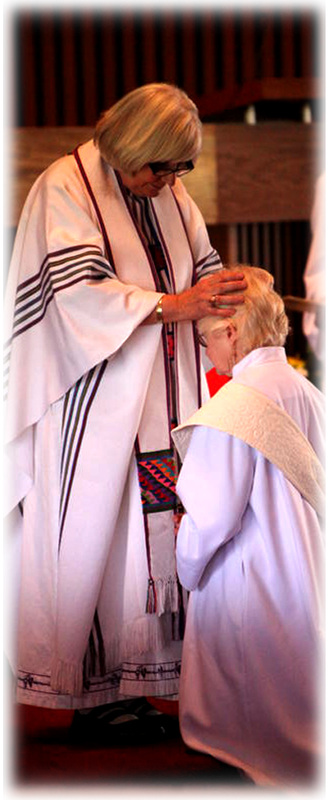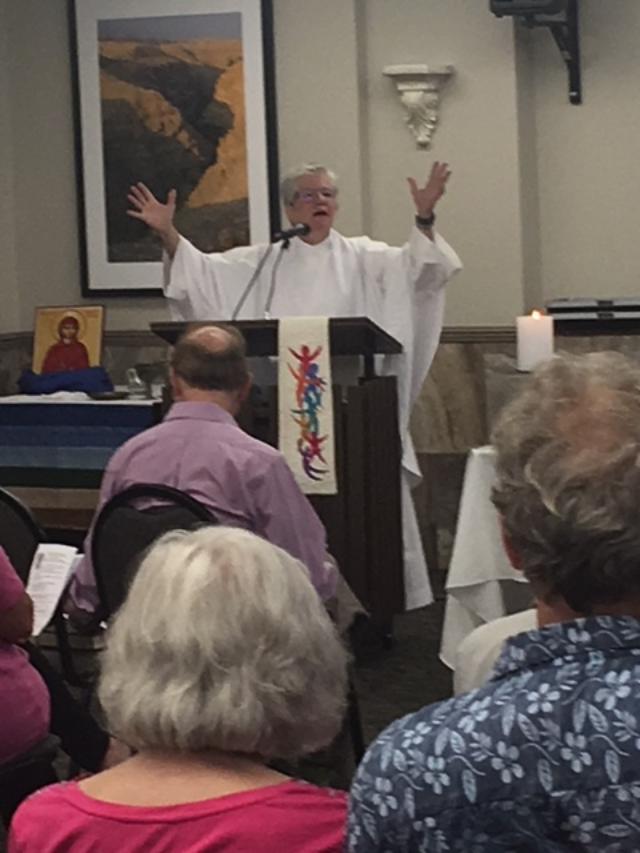1/19/2020
Angela Meyer
Given the opportunity to preach for our beloved, progressive, inclusive, predominantly white Catholic community on the eve of MLK Day, I prayed first with the words of Rev. Dr. Martin Luther King, Jr. who prophetically spoke out to an assembly gathered at Riverside Church in New York on April 4, 1967 and declared it is not enough for us to be Good Samaritans.
It is a weighty statement: “A true revolution of values will soon cause us to question the fairness and justice of many of our past and present policies. On the one hand, we are called to play the Good Samaritan on life’s roadside, but that will be only an initial act. One day we must come to see that the whole Jericho Road must be transformed so that men and women will not be constantly beaten and robbed as they make their journey on life’s highway.”
It has been 52 years since Rev. King delivered that address, and his words remain every bit as critical today as they were back then. One question we must ask of ourselves is: who are we on today’s Jericho Road? In a system as complex as ours, it may not be so easy to see.
In our lectionary readings¹ for January 19th, we are being asked to notice who our modern Jericho highways and byways are hurting. If we are really open to this holy quest, we will inevitably discover that what brings comfort to some of us actively afflicts many. Even more difficult, perhaps, is the reality that many of us have complex relationships of being both abused and “protected” by the systems that we live in.
Our modern Jericho Road is complex, built and framed upon centuries’ of minority discrimination and oppression. The result is that we are living in a deeply injured world that is crying out in the wilderness for freedom from the sins of colonialism, racism, sexism, heterosexism, discrimination against folks with disabilities, xenophobia, Islamophobia, antisemitism, and more.
This is a painful process. And yet, we are called as Church to help identify and untangle this mess. It is an overwhelming task. So where can we begin?
Our lectionary readings for the day suggest we can begin by listening and discerning who we are. CTU professor C. Vanessa White reflected, “the most crucial clue to the knowledge of God is to be found in the honest and most total knowledge of self.” This is an observation that goes very well with today’s readings, and it begs a few questions. Who are we, how are we in our world, and are we making space for God’s presence?
Who are we? Specifically, here at St Mary of Magdala, we are a people whose full humanity has been rejected by the Catholic Church. We are women, LGBTQIA folk, and allies who refuse to let patriarchal norms continue to afflict our lives and those of generations to come with the evils of sexism and heterosexism. I would like to suggest that this offers us a baseline for contemplating the ills of racism.
For example, as an RCWP congregation, we are aware of the deprivation of women’s voices in scripture, church history, liturgy, and ordained sacramental ministry. The history of Catholic Christianity has always been told through a predominantly white Eurocentric male lens. Women still cannot vote. Even when it comes to talking about theological and ecclesial issues affecting Catholic women, deliberations and decisions about our lives and bodies are made by men. Oh, and women aren’t allowed to preach at Mass.
Not all Catholics perceive these factors as injustices, not even all Catholic women. Depending on where I post this homily, I will probably be spammed with “heretic” comments. This makes unraveling the embedded sexism within the church exceedingly difficult. Not until an overwhelming number of Catholics decide that the power of the assembly of God’s people is worth saving from the perils of institutionalized sin will we advance toward healing of this Jericho Road.
My ability to preach at a Catholic Mass is only possible because of the work that faithful Catholics have been doing for decades in an ongoing battle for gender equality. The only reason our congregation exists is that a small number of bishops decided to combat misogyny embedded in the very fabric of Catholicism and ordained seven women to the priesthood on the Danube in 2002. Later, they ordained 2 of these women to be bishops to enable the continued ordination of women to the Roman Catholic priesthood, and Roman Catholic Women Priests (RCWP) began. Since that time, several devout Catholic women in Indianapolis have stepped into the light of their priestly calls, become ordained, and along with several others, formed Catholic communities intent on inclusiveness.
How are we in our world? When we gather in these small communities, we remember who we are as Christ-followers, and we stand in solidarity with our deepest held beliefs. This is exactly the same thing that happens in each of our readings today. Our scriptural heroes all demonstrate deep awareness of self and commitment to the work of God, especially in the face of serious oppression.
We know what it means to fight for sex and gender justice in the Church. Our very existence is both a protest and a living example of what Catholicism could look like globally if we rid our institution of these specific injustices.
As we prepare to celebrate the legacy of Rev. Dr. Martin Luther King, Jr., let’s think about how we can match our fervor for gender justice with a fervor for racial justice in our communities. Just as the church needs to hear and heed the voices and leadership of women, the world needs to hear and heed the voices and leadership of black, indigenous, and people of color (BIPOC). We cannot have a balance and equality of humanity without it. Dare we imagine a world rid of sins of racism?
How are we making space for God’s presence? We know that — just like rooms full of aging white Bishops can’t solve “women’s issues” while keeping us silent doing the chores of the Church — the sins of this nation afflicting BIPOC cannot be solved in white corporate headquarters and the white halls of Congress. Just as we demand equal participation as women and LGBTQIA folk in Church, we must give space, attention, and funding to BIPOC until their voices are heard and have equal representation and opportunity as local, state, and national leaders.
What if we don’t? Our reading from Daniel shows us exactly what a world of mindlessness, inequity, and oppression looks like. Bible scholar Hector Avalos² points that “As soon as the instruments sound, the pagans genuflect en masse before a lifeless image without a second thought. In effect, [they help] to portray those pagans as a version of Pavlov’s dog.” Listen again to how absurd this passage sounds if we make a few modern adjustments:
The National Broadcast Alert system proclaimed: “Nations and peoples of every language, when you hear the sound of the fireworks, trumpets, cymbals, clarinets, trombones, and all the other musical instruments, you must fall down and worship the golden image which Nebuchadnezzar has set up and will appear on all of your phones and devices.”
In the disrupted world, we are living in, this sounds ridiculous and downright creepy, doesn’t it? (Anyone seen Runaways season 3, episode 6?) I’m not sure how far-off it is, though. How many times a day are modern lives disrupted by the rings, bells, and beeps of handheld devices? How conditioned are we to attend to their alerts? How do they shape our thinking and behaviors? But I digress.
Thankfully, our Judean heroes of this story know how to cope with the assault of mob-mentality. To them, the fear of dying in a fiery furnace is nothing compared to the terrible alternative of losing who they know themselves to be: people of God.
I think it’s easiest to put ourselves in the position of Shadrach, Mesach, and Abednego. Daniel did such a good job making mob-mentality look simple-minded and stupid; there’s no way we want to be part of that. Plus, the reality is that most of us have experienced some form of oppression. If nothing else, we have stood our ground in support of women’s equality in the Catholic Church, even though it means that we may have lost our welcome within the institution. We have been true to ourselves and the call of our God. At least this has been our intention. We are like Shadrach, Mesach, and Abednego.
However, Hector Avalos also challenges us to meditate on ways we still might be in a supportive role to Nebuchadnezzar's of our own times. When we live within a power structure, the only way to bring conscientiousness to mindless oppressive systems is through contemplation and very hard work. We do that by practicing the skills we wish Catholic Bishops had by decentering ourselves. We have to learn to recognize our own biases and know ourselves deeply. We must also allow ourselves to listen to the stories, histories, and experiences of others, especially BIPOC. We have to be willing to be in relationship with others in a way that challenges and changes us.
This was a really tough homily to write. It is hard to bring up a problem that feels so immense that it overwhelms us, and a homily doesn’t fix much — but maybe it can help us have more conversations.
If we don’t know anything else to do to help break down the problems of racism and othering in our world, we can start right with learning more about ourselves with respect to racist structures. We can be prayerful and self-reflective. We read books and articles written from the vantage points of other cultural groups, and we can listen to others with an intention to deeply hear and learn. And still, that doesn’t mean it is easy.
For the sake of truth, we have to walk willingly into pain and discomfort just like Shadrach, Mesach, and Abednego had to walk straight into the flames of Nebuchadnezzer’s furnace; and we have to believe, like the story tells us, that God will join us, save us, and walk us right back out into a changing world.
On that day, as Rev. Dr. Martin Luther King, Jr. famously quoted: “justice will roll down like waters, and righteousness like a mighty stream.”
Let us make way for our God.
¹ Jane Via and Nancy Corran, eds., “Readings for January 19, 2020, 2nd Sunday in Ordinary Time & Martin Luther King Jr. Observance,” The Comprehensive Catholic Lectionary, https://www.inclusivelectionary.org/.
² Avalos, Hector. 1991. “The Comedic Function of the Enumerations of Officials and Instruments in Daniel 3.” The Catholic Biblical Quarterly 53 (4): 580–88.
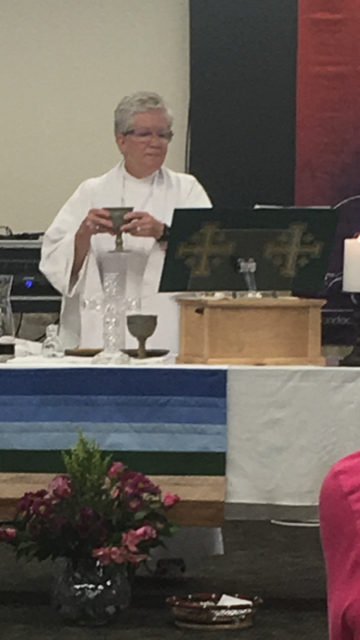
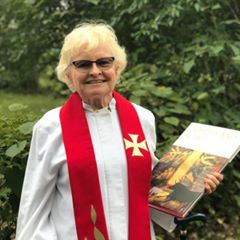
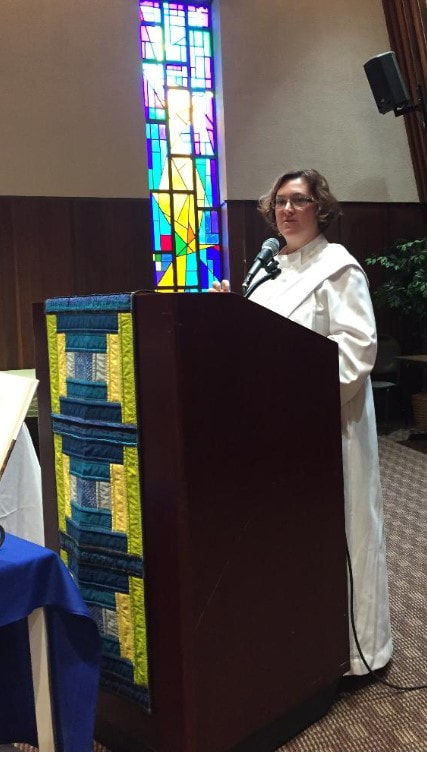
 RSS Feed
RSS Feed
